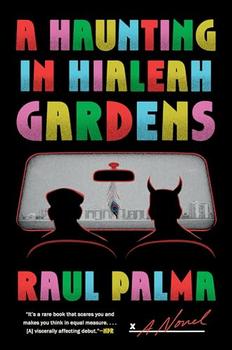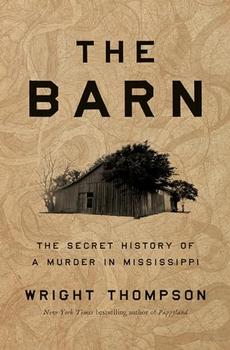Summary | Excerpt | Reviews | Beyond the Book | Read-Alikes | Genres & Themes | Author Bio

This article relates to My Name is Not Friday
Freedom is a wonderful thing. It allows us choices in where we go and how we live. Without it, our lives would be very different. Abraham Lincoln's Emancipation Proclamation, which freed slaves, was signed in 1863. Just think: it's only been 150 years that freedom has been the law in the United States.
 Before Lincoln's signing there were, of course, freeborn black people; however, their freedom wasn't simple. Some were tricked or stolen into slavery. Many of us are familiar with the true story of Solomon Northup, the free man who was captured and sold into a terrible twelve years of slavery. His story, 12 Years a Slave, was a popular book, and was later made into an Academy Award-winning film.
Before Lincoln's signing there were, of course, freeborn black people; however, their freedom wasn't simple. Some were tricked or stolen into slavery. Many of us are familiar with the true story of Solomon Northup, the free man who was captured and sold into a terrible twelve years of slavery. His story, 12 Years a Slave, was a popular book, and was later made into an Academy Award-winning film.
While the stories of adults being taken advantage of are heartbreaking, those of children being taken away from their families are even worse. Jon Walter's My Name is Not Friday is a fictional account of Samuel, a teenage, freeborn boy, who is sold into slavery. He encounters what you would expect a boy in such a situation would face. He's abused. He's fed little. He works long hours in dangerous conditions. Walter's novel follows Samuel as he tries to find his way back to his family and to his freedom.
While Samuel is fictional, there are a plethora of true stories about freeborn black children who had their freedom taken from them. Two stories, in particular, stand out. One, about Nahum Gardner Hazard, is only a brief dive into the horrors of mistreatment. The other, about Francis Jackson, is hopelessly tragic. These stories are certainly different in their outcomes, but they both serve as reminders of the horrible institution of legal slavery that is a part of America's history.
In 1839, Nahum Gardner Hazard was only eight-years-old, living in Worcester, Massachusetts, when his life changed. According to Thomas Caywood of Telegram.com, two men approached a man on the street and asked where they could find a "colored boy" for potential employment. The man played coy and gave no names or addresses. The men, though, set on finding a boy to sell into slavery, went to the home of Caira Hazard and convinced her, with the promise of "his upkeep and education," to allow them access to her son, Nahum. Ms. Hazard agreed as such a promise was not entirely unusual.
 The men took Nahum to Virginia, where they planned to sell him at a slave market. Caywood describes how Nahum, along with Sidney Francis, another kidnapped boy, caused a disturbance in the streets. What did they do? They read. Slave boys having the ability to read would have been exceptionally unusual during this time in the American South, so people began to investigate the actual nature of the two thieves' intentions. It didn't take long for the truth to become exposed. Nahum was reunited with his mother. While he did escape the true, physical horrors of slavery, he still experienced a loss of freedom that would forever haunt his life.
The men took Nahum to Virginia, where they planned to sell him at a slave market. Caywood describes how Nahum, along with Sidney Francis, another kidnapped boy, caused a disturbance in the streets. What did they do? They read. Slave boys having the ability to read would have been exceptionally unusual during this time in the American South, so people began to investigate the actual nature of the two thieves' intentions. It didn't take long for the truth to become exposed. Nahum was reunited with his mother. While he did escape the true, physical horrors of slavery, he still experienced a loss of freedom that would forever haunt his life.
The story of Francis Jackson, another freeborn black child, has an ambiguous ending, but seeing where it's going, it is not difficult to imagine what Francis likely endured. Black Press Research Collective presents a letter from 1841, written by a man by the name of John Carter. In the letter, Carter describes how Francis, "a small boy" from Pittsburg, was kidnapped and taken "into bondage by a northern man with southern principles." Francis was tricked into following the kidnapper by the promise of getting to watch races. The man took Francis to Virginia and sold him into slavery. The only other available information is that a plantation owner in Louisiana bought Francis. Just like that: Francis' freedoms that he was born with were stripped from him.
Stories like the ones lived by Nahum Gardner Hazard and Francis Jackson and even the fictional one presented in Jon Walter's My Name is Not Friday are all too common in America's history. The foundational idea of slavery and owning someone because of skin color is horrible alone, but the manipulation of enslaving freeborn black people only amplifies the atrocity of slavery.
I would like to say that things are perfect now. It would thrill me to admit that these horrific, race-based stories are solely a part of America's past, but I can't. Stories of young black boys dying at the hands of white police are common headlines in today's newsreels. There is hope, though. There is always hope. Dr. Martin Luther King, the famous civil rights leader, famously said, "Let freedom ring." We can only hope for that ringing bell to grow stronger.
Sketch of Solomon Northrup, courtesy of Mike Hayes Nahum Gardner Hazard, courtesy of findagrave.com
Filed under People, Eras & Events
![]() This "beyond the book article" relates to My Name is Not Friday. It originally ran in January 2016 and has been updated for the
May 2017 paperback edition.
Go to magazine.
This "beyond the book article" relates to My Name is Not Friday. It originally ran in January 2016 and has been updated for the
May 2017 paperback edition.
Go to magazine.




When a true genius appears in the world, you may know him by this sign...
Click Here to find out who said this, as well as discovering other famous literary quotes!
Your guide toexceptional books
BookBrowse seeks out and recommends the best in contemporary fiction and nonfiction—books that not only engage and entertain but also deepen our understanding of ourselves and the world around us.